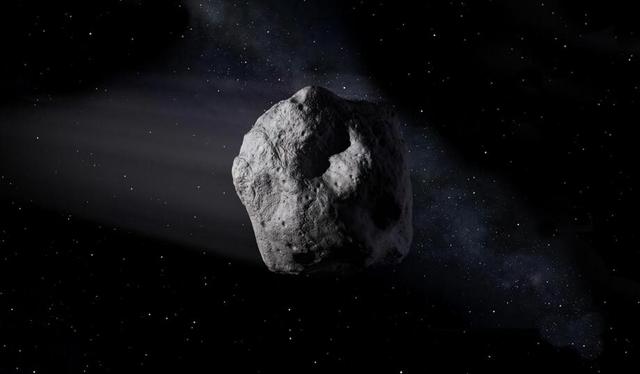Dinosaurs left a fascinating chapter in the evolution of life on earth, first appearing some 230 million years ago and "Ruling" The planet for 160 million years. To this day, there are numerous dinosaur fossils scattered around the world, still silently telling us of their former glory.
Nowadays, there are no dinosaurs left on the earth. The prevailing scientific opinion on the cause of dinosaur extinction is that an asteroid with a diameter of about 10 kilometres struck the earth about 65 million years ago, resulting in the extinction of about 75% of the species on earth at that time, dinosaurs being only one of them.

(a map of gravity anomalies in the yucatan peninsula region of mexico, with the arc-shaped structures that are the remains of this impact, known as the hixulub crater, which is about 25 km deep and 180 km in diameter)
The question is often raised about this idea: Could an asteroid with a diameter of only 10 km really have exterminated the entire planet's dinosaurs? It has to be said that there is some truth to this question - after all, an asteroid of only 10 km in diameter is nothing compared to the 12,742 km diameter of the earth.
In fact, the asteroid did not cause much damage to the earth itself, and the dinosaurs became extinct because of a series of events caused by the asteroid on earth, which can be divided into four "Waves".
The first wave: The impact

According to scientists, the asteroid came from the asteroid belt between jupiter and mars and had a mass of about 2 trillion tons. When it impacted with the earth at a speed of more than 20 kilometres per second, the shock waves generated made the whole earth tremble, triggering the sudden eruption of many volcanoes on the planet. A few seconds later, a super tsunami thousands of metres high was unleashed.
The huge waves washed up on coastal land and swept across everything they encountered along the way, and over the next few days, the same happened in coastal areas around the globe, with large numbers of land creatures being mercilessly swallowed up by the super-tsunami.
The second wave: A shower of meteor fire

In addition to causing super-earthquakes and tsunamis, the violent impact also converted the enormous kinetic energy carried by the asteroid into heat, followed by a violent explosion with a force equivalent to at least 100 trillion tons of tnt equivalent. At extremely high temperatures and pressures, the asteroid pulverised, the seawater near the impact point evaporated instantly, and the rocks and other materials in the earth's crust melted or even vaporised outright at high temperatures.
Some 20 trillion tonnes of hot molten material shot up into the clouds in the explosion, a small fraction of which flew straight out of the earth, while most of the material flew at high speed through the atmosphere, lower and lower under the earth's gravity, eventually turning into a meteoric shower of fire that slammed into the earth's surface and caused forest fires around the world.
Wave 3: Acid rain

Gypsum, a calcium sulphate hydrate, was widespread in the strata of the impact area, and during the impact, large amounts of sulphide were also released into the atmosphere. This sulphur formed acid rain that spilled to the surface within days of the impact, and while this acid rain hit terrestrial vegetation hard, it also rapidly degraded the marine ecosystem, and many marine organisms became extinct as a result.
The fourth wave: The "Nuclear winter"
The impact of the asteroids caused huge amounts of dust and aerosols to enter the atmosphere, where they could remain suspended for long periods of time and effectively block out sunlight.
Without enough sunlight, the temperature of the earth's surface begins to drop rapidly, and, even more frighteningly, algae in the oceans and plants on land die off because they cannot photosynthesize properly, and the global ecosystem falls apart.

Scientists estimate that this "Nuclear winter" Lasted from a few months to several years, and that this wave was the most deadly "Blow" To life on earth at the time. In this way, one wave after another, life on earth became extinct, and even the mighty dinosaurs did not make it to the end.
It is worth noting that recent research has shown that birds evolved from a small subclass of theropod dinosaurs, and in this respect it seems safe to assume that dinosaurs were not completely extinct, as all the birds that exist on the planet can be considered descendants of dinosaurs.


